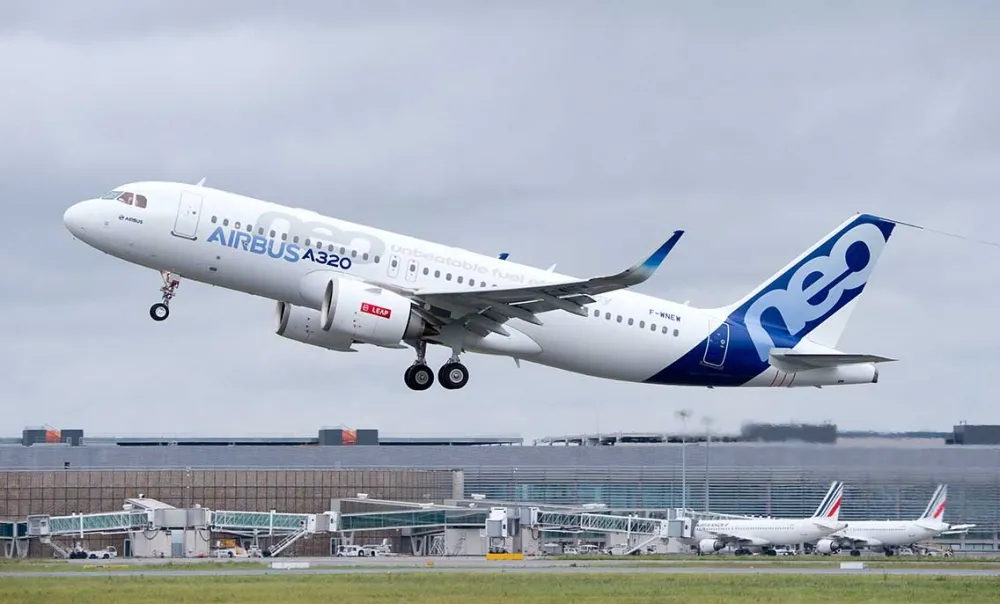
Boeing loses big MAX order to Airbus
Jul 08, 2019

Boeing has experienced a significant setback as it lost a major order for its 737 MAX aircraft to rival Airbus. This development highlights ongoing challenges for Boeing, which has struggled with production issues and safety concerns surrounding the MAX model. The decision by the airline to switch to Airbus reflects a growing preference among carriers for more reliable and efficient aircraft options. Analysts suggest that this loss could further impact Boeing's market share and financial recovery as the aviation industry continues to rebound from the pandemic's effects. The competition between Boeing and Airbus remains fierce in the commercial aviation sector.
Boeing's Challenges in the MAX Market
The recent news of Boeing losing a significant MAX order to Airbus has sent shockwaves through the aerospace industry. This development highlights the ongoing challenges that Boeing faces in maintaining its competitive edge against Airbus, particularly in the narrow-body aircraft market. With the MAX series being a pivotal part of Boeing's product line, the loss of such an order raises questions about the company's strategy moving forward.
The Details of the Order Loss
This specific order, which was originally anticipated to bolster Boeing's MAX sales figures, has reportedly been redirected to Airbus. This shift not only underscores Airbus's growing dominance in the market but also raises concerns about Boeing's ability to recover from previous setbacks, including the MAX grounding and production halts.
According to industry analysts, the implications of this order loss are substantial. Boeing had been counting on this deal to stabilize its production numbers and restore confidence among its stakeholders. The lost order could lead to further financial strain, particularly as Boeing works to ramp up production of the MAX series.
Market Dynamics: Boeing vs. Airbus
The competition between Boeing and Airbus is often characterized by a series of strategic maneuvers and market responses. Airbus has effectively leveraged its reputation for reliability and innovation, attracting many airlines to its A320 family of aircraft. In contrast, Boeing has faced numerous challenges, particularly with the MAX series, which has been marred by safety concerns and regulatory scrutiny.
To illustrate the market dynamics, consider the following table that outlines the recent order statistics for both manufacturers:
| Manufacturer | Aircraft Model | Orders in 2023 | Total Backlog |
|---|---|---|---|
| Boeing | MAX 737 | 200 | 3,000 |
| Airbus | A320 | 350 | 6,000 |
Implications for Boeing's Future
The ramifications of this order loss extend beyond immediate financial concerns for Boeing. It may lead to a reassessment of the company's marketing strategies and production capabilities. Boeing must effectively address safety perceptions and demonstrate the reliability of the MAX series to regain the trust of airlines and investors alike.
Furthermore, Boeing's leadership may need to consider strategic partnerships or innovations that could enhance the appeal of its aircraft offerings. The aerospace industry is evolving rapidly, with increasing emphasis on sustainability and fuel efficiency. Boeing's ability to adapt to these trends will be critical in reclaiming lost market share.
Airbus's Positioning and Strategy
On the other hand, Airbus is capitalizing on its recent successes and may choose to expand its offerings further. With the A320 family gaining traction, Airbus could introduce new models or variants that cater to specific market segments, further solidifying its position as a leader in the industry.
Airbus’s successful strategies include aggressive marketing tactics and a focus on customer-centric solutions. By offering competitive financing options and customizable aircraft features, Airbus has been able to attract a diverse range of airlines, from low-cost carriers to premium operators.
Conclusion: A Turning Point for Boeing?
Boeing's loss of a significant MAX order to Airbus could mark a turning point for the company. As it grapples with the implications of this setback, the aerospace giant must reevaluate its strategies and address the underlying issues that have led to a decline in orders.
The rivalry between Boeing and Airbus continues to intensify, and the coming months will be critical in determining how both companies navigate this competitive landscape. For Boeing, the focus should be on innovation, safety, and regaining the trust of its customers to ensure a successful recovery in the market.
As the industry watches closely, the next steps taken by Boeing will be vital. Stakeholders will be eager to see how Boeing responds to this challenge and whether it can reclaim its position as a leader in the aerospace sector.
Related Articles

Explore Thailand: The Best Islands to Visit for Paradise, Adventure, and Relaxation

The Ultimate Guide to the Best Islands in Thailand for Your Next Getaway

Do babies need passports? How to get a passport for a newborn

How to get a U.S. passport fast: here’s how to expedite the process

What is Mobile Passport Control: 5 reasons why you should use it

SENTRI vs. Global Entry: A detailed guide

Do you need a passport to go to the Bahamas? Let’s find out

Do you need a passport to go to Mexico? A detailed guide

Do you need a passport to go to Canada? We got the answer

Do You Need a Passport for a Cruise: An Essential Travel Guide

Booster Seat Requirements: All the Rules to Follow in Your Rental Car

What Are the World’s Most Powerful Passports, and How Does Yours Rank?

How to Take a Passport Photo at Home: A Helpful Guide

You've got to have heart! Southwest's new livery

Your opinion: Should water be free on low cost carriers?

Young women bolder than guys as solo travellers
